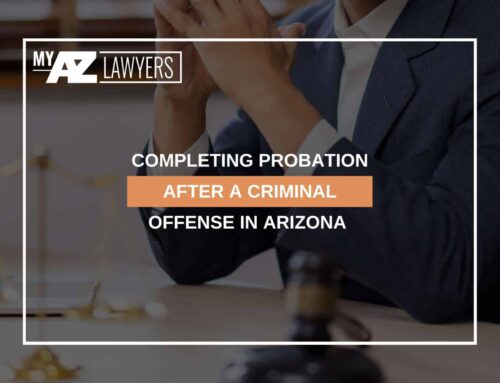Table Of Contents
Welfare Fraud Criminal Charges In Tucson, Arizona
Here at My AZ Lawyers, we love a juicy headline, especially when it includes ties to our home state. The latest news saga to grab our attention includes a blast from the past with a modern dystopian twist. Back in 2015, Rachel Dolezal came to the public’s attention when she was exposed as being white. At the time, she was the president of the NAACP in Spokane, Washington, and had led her peers to believe she was half-black by tanning her skin and wearing traditionally black hairstyles. This behavior has since been identified and named “blackfishing” by the internet. Her parents came forward and stated that although she had black siblings through adoption, she was born white to white parents. This also caused her to lose her job as a professor at Eastern Washington University.
After the fallout from the scandal, Dolezal legally changed her name to Nkechi Diallo. She and her family moved to Tucson, Arizona, where she became employed by the Catalina Foothills School District. She was working with kindergarten and elementary students, as well as working as a contractor substitute teacher. This has come to an end, as the school district just recently learned of Diallo’s OnlyFans account. While she claimed the account was originally made to honor Rihanna and her business efforts, Diallo has been supplementing her income as a teacher by posting racy photos on the internet. This came after publishing her memoir, “In Full Color: Finding My Place in a Black and White World.” Diallo was receiving public benefits when her memoir was published and failed to report her earnings, which resulted in welfare fraud charges that were settled through a plea agreement in 2019. This goes to show that you never know who your local school district may hire, because a Tucson school district hired a disgraced blackfish with an online porn profile and a history of welfare fraud. Read on to learn more about the criminal offense of welfare fraud in Arizona, and if you’re seeking an experienced criminal defender in Tucson, call 520-231-2822 for your free consultation.

Arizona Revised Statutes Section 46-215
Welfare fraud is defined in the state of Arizona by A.R.S. § 46-215. Welfare fraud occurs when a person knowingly makes a false statement or representation, impersonates another person, or uses a fraudulent device to obtain assistance or services they are not entitled to or greater than to which they are entitled. For example, if someone is already on welfare but lies and says they lost their job to increase their benefits, this would still be considered welfare fraud even though the person would be entitled to welfare anyway. It is also considered welfare fraud if the person receives payment of “any forfeited installment grant, or aids or abets in buying or in any way disposing of the property of a recipient of assistance or service without the consent of the department.” While this wording may sound confusing, it is meant to encompass a broad array of actions that are overall intended to falsely take advantage of welfare benefits.
If a person is found guilty of welfare fraud, they will be disqualified from receiving welfare for a certain period of time. They will also be disqualified if they sign a waiver of an administrative disqualification hearing or if they commit any crime or petty offense against any assistance program. For the first offense, the person will be disqualified for one year. The disqualification period for a second offense is two years. If the person is found to have committed a third or subsequent violation, they will be permanently disqualified from receiving welfare in Arizona. Welfare fraud is a class 6 felony in Arizona.
Class 6 Felony Penalties
A person found to have committed welfare fraud will not just lose their benefits, but can also face criminal prosecution. Arizona’s sentencing guidelines for first-time felony offenses are laid out by A.R.S. § 13-702. The minimum prison sentence for a class 6 felony is 6 months and the maximum is 1 year 6 months, with the presumed sentence being 1 year. Mitigating factors can reduce the sentence to 4 months and aggravating factors can increase the sentence to 2 years.
If a person is found to have committed a second welfare fraud violation, their sentencing guidelines will be stricter. Repetitive felony offense sentencing guidelines are set forth by A.R.S. § 13-703. The minimum sentence will be 1 year, and the maximum sentence will be 2 years 3 months with a presumptive sentence of 1 year 9 months. Aggravating factors can increase the sentence to 2 years 9 months, and mitigating factors can reduce it to 9 months. For a third or subsequent offense, the minimum sentence is 3 years and the maximum sentence is 4 years 6 months with a presumptive sentence of 3 years 9 months. Aggravating factors can increase the sentence to 5 years 9 months and mitigating factors can reduce it to 2 years 3 months.
Often, felons will need to complete one or more years of probation after serving time in prison. This is in addition to fines and other penalties that may be imposed by the court during sentencing, such as educational courses and community service. Convicted felons can also lose civil rights like owning a firearm, voting, and running for public office. For more information about potential penalties for felony charge in Tucson, Arizona or restoring civil rights after a felony conviction, call 520-231-2822 for your free consultation.
Defenses Against Welfare Fraud Charges
If you’ve been charged with welfare fraud, you need to come up with one or more strong defenses to avoid losing your benefits and facing criminal penalties. Many criminal defenses rely on violations of the defendant’s privacy and constitutional rights, but due to the nature of many assistance program applications, these usually won’t apply. A defendant accused of welfare fraud may want to attack the knowing and intentional element of the charges against them. For example, someone may have stolen their identity and committed welfare fraud, which would be a defense to criminal charges.
When facing felony charges, sometimes working with the prosecutor to reduce the charges is the most strategic move, just as Nkechi Diallo did. A defendant accused of a class 6 felony may be able to convince the prosecution to charge the crime as a misdemeanor instead. This comes with less damaging effects on the defendant’s reputation and criminal record. For more information about plea bargaining against criminal charges in Tucson, call 520-231-2822 for your free consultation.
Experienced Tucson Criminal Defense Attorneys Offering Free Consultations
Don’t let welfare fraud charges or other felony offenses put an end to life as you know it. Our criminal defense team has experience fighting back against a variety of charges to help achieve an ideal outcome from an unfortunate situation. You should begin consulting with defense attorneys as soon as you become aware of the charges against you. Start your search here with a free and confidential consultation by phone- call 520-231-2822 to get started today. Contact us at My Az Lawyers today!

MY AZ LAWYERS
Email: [email protected]
Website: www.myazlawyers.com
Mesa Location
1731 West Baseline Rd., Suite #100
Mesa, AZ 85202
Office: 480-448-9800
Phoenix Location
343 West Roosevelt, Suite #100
Phoenix, AZ 85003
Office: 602-609-7000
Glendale Location
20325 N 51st Avenue Suite #134, Building 5
Glendale, AZ 85308
Office: 602-509-0955
Tucson Location
2 East Congress St., Suite #900-6A
Tucson, AZ 85701
Office: 520-441-1450
Avondale Location
12725 W. Indian School Rd., Ste E, #101
Avondale, AZ 85392
Office: 623-469-6603











